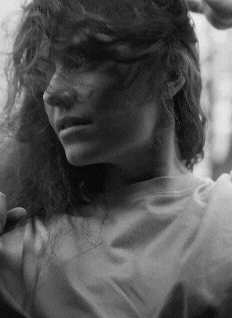PODCAST – How to Build a Spiritual Business w/Rohini Moradi
You may have heard about the term “spiritual entrepreneurship” before but don’t know exactly what it means. This conversation with Rohini Moradi of Magic Inclined will help you understand what it takes to build a successful spiritual business.
Rohini Moradi was born into a spiritually-driven life in Tehran, Iran where her father ran the only Hindu temple in the city during the Muslim revolution.
During her childhood, her family traveled throughout India, devoted to a colorful, yogic life. Rohini got to experience an upbringing that was centered around a love for their community.
Her days were filled with meditation, chanting, yoga, and cleansing the body to grow as a spiritual being. Today, Rohini is known as an Expert on the Akashic Realm, as well as a guide for individuals looking to confidently navigate their spiritual path.
In this conversation, Rohini shares her journey of abandoning her spiritual practices, only to have a full-circle moment that inspired her to embark on a journey of spiritual entrepreneurship.
We also talk about the ego and how it can be a powerful tool for amplifying your life purpose and getting your magic out into the world.
Below is a transcription for this episode. Please listen on Apple Podcasts or Spotify for the full show!
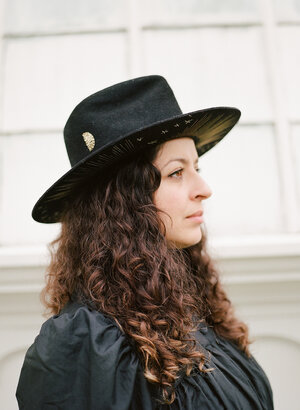
Meet Rohini Moradi
Host | Tristan Thibodeau:
Rohini Moradi! One of my all-time favorite clients that I’ve ever worked with. Thank you so much for coming on today. I cannot wait for you to share your story of the brands that you’ve created and also the story of how business has become such a spiritual journey for you. So that’s where we’re going to go today, but can you start off telling the wild womn fam, all about how you grew up because I love your backstory. I think it is so magical and so rich and so unique. So I’m just going to let you take the mic and tell us about how you grew up, where you’re from and what that was like for you.
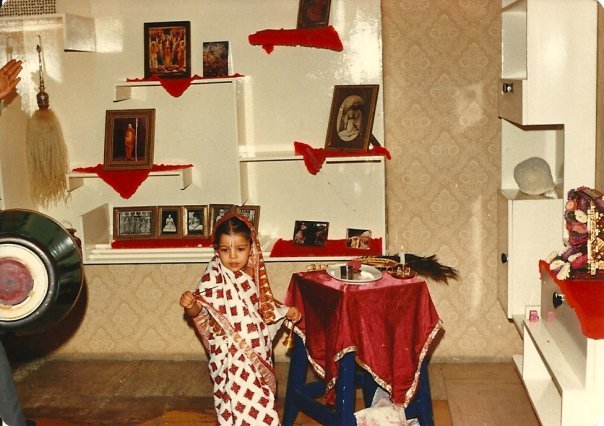
How to Build a Spiritual Business – Draw from Your Childhood
Guest | Rohini Moradi:
Thank you, Tristan. And it’s like, it’s magical working with you, like beyond magical. So that makes it feels so good that you like working with me. My story is a unique one. I grew up in a Hindu temple in Tehran, and I traveled all through India during my childhood. Up until like around eight or nine, when we fled as political refugees from Iran.
We were like driven out. But I often equate my life to the Disney character, Mowgli.
Host | Tristan Thibodeau:
I knew you were going to say that
Guest | Rohini Moradi:
I grew up in the jungle. We lived in the middle of Tehran too. Tehran – it’s a really big city. And at the time there is a huge Muslim revolution happening and we were Hindus, so that did not mesh well. At the same time, you know, shortly after that, the Iran-Iraq war started going on.
So it was just like living in this, very spiritual container while everything is kind of scary outside. Bombs going off, people fighting, protests everywhere. Family members are constantly in jail. My dad was in jail so many times. We had an Indian restaurant and his restaurant was seized because it’s Indian food. Oh, no.
That’s my upbringing. After we fled, we went through like a whole journey where we had to secretly get out. We went to Dubai for two months. It felt like spy work, you know?
I don’t remember when this exactly was actually where we were going from one point to another and we had to hide in the back of trucks with tarps on top of us.

How to Build a Spiritual Business – Experiencing Separation from Self
And finally, like we arrive in America with like $300 in our pockets because my parents led a life of service. It was all about service. It was all about outgoing, whatever donations or whatever people made to the temple was to only maintain the temple to output. So they would use the money to cook giant meals and serve them to like the surrounding houseless community.
We would take that money, go to India and do the same thing. Like just feeding people. That’s all constantly what it felt like, what we did and to try to just spread that message of love. So when we finally arrived, it was like, Um, okay. Now we’re in this world where you need money to survive. It was quite scary.
So we grew up really poor. Five of us lived in a one-bedroom apartment for like, I think four or five years after we moved here. And my parents went from not working ever to working. All the time. My mom did stuff, and my dad would have two jobs. Working during the day and then at night and then my mom would do whatever she could.
And all of a sudden we went from like a tight unit to me becoming like a parent in a way and having to like take care of my siblings. So it was a very big contrast. Yeah. And at the same time, like trying to fit in with Americans, you know, I’m already a weirdo. Like now I’m going to wear it out in a new country.
I was a weirdo in Iran growing up where they’re like, you’re not like us, you know, even though like my blood is from there like you’re not, I guess like, okay. And then I go to India and they’re like, you’re going to not like it. You know, I’m like, okay, I’m here. They’re like, you are not like us. I think that has a lot to do with my brand.

How to Build a Spiritual Business – Reclaiming the Self
Host | Tristan Thibodeau:
Yes, it does. And that’s exactly where I’m going next because we can dive into more of the nitty-gritty of your brand, but it is a spiritual brand that’s rooted in. The history and the modalities that you learned growing up and that come from. Your culture and that come from your religious background.
And so it’s so interesting that you have come like a complete, full circle of your journey of maybe abandoning that for a short time and then coming back into it and owning it and now making it your own and teaching people all over the world about the traditions and the modalities and the beliefs that you grew up with.
So before we dive into that, Can you tell us what the journey of reclaiming that identity was like for you coming to America and feeling that very outcast black sheep energy of you are not like us to now completely owning that and using it to empower others through your brand. Like if you had to give us the expedited story of what that process taught you on an identity level or even spiritually, where would you start in telling us that story?
Guest |Rohini Moradi:
Well, I think a really big part of it has to do with age, to be honest. Um, because when I first moved to care, I tried to fit in and I couldn’t, there’s no way, but I tried to be as silent as I could. So at least I’m not picked on, um, kept everything inside, barely spoke up. Um, I didn’t share my point of view, and honestly, like just mirrored, whoever I was hanging out with so that I don’t get picked on.
Cause I experienced getting picked on for like the first two years I moved through it and it was awful. It was really scary. Um, So I took that with me for a long time. And after a long time of like, not being yourself and suppressing a huge part of yourself and your true essence, um, your inner world starts to percolate, you know, and it just.
Uh, there’s depression. Like whatever you want to, like anything you want to throw out the anxiety, all this stuff starts stemming from things like that. And it happened to me. And, um, one way that I medicated myself through that depression and through that anxiety is I started drinking a lot and like doing a lot of drugs and just like.
Super party lifestyle where, you know, it took me to a lot of fun places too. But, um, at, at a certain point like that, that voice inside of me, W became louder. And once that voice became louder, I started implementing small changes, and, um, over time implementing these small tutors has brought me to the place where I can be comfortable speaking out loud.
Even speaking to you would have been a terrifying thing to me, like 10 years ago, like, oh my gosh, they’re going to hear. Um, like they, who, I don’t know, but they are going to hear me play music and go on stage. And every time, like, you know, I was supposed to tell a story or something, I would fumble all my words, like really quickly get the attention off of me, pass it on anyway I could.
Um, Yeah, stagefright to the max, and now it’s just kind of maybe it’s age, but it also might be like the daily practice of facing fears of the kind of like pushing against this like persona I had created for myself who wasn’t me and just like redefining that persona and speaking, um, from a spinner centered space, but also, um, with people who are.

How to Build a Spiritual Business – Accepting Your Voice
Open to hearing my voice, um, has helped, uh, ground and be that natural essence I am. And I think that helps in business as well, because when we’re not ourselves and we’re trying to move forward with, uh, like an impactful thing in this world, um, it doesn’t like the experiences don’t come back the way we hope they do.
Host | Tristan Thibodeau:
Yeah, absolutely. And I can speak into this, now, and this might be some people might receive this and be like, what are you talking about? You’re so bold. You’re confident. Um, you know, whatever the words are, you, whatever you show up. So charismatically, and there’s never really a point where you land completely in feeling like I’m safe to completely reveal.
All of who I am to the world. Like, I don’t think that there’s that point that we’re going to reach as entrepreneurs, especially because as we’re sharing our story and as we’re creating value, and as we’re building a brand that stands for something powerful, you are navigating the path of what to deliver so that people are resonating, but also so that you are connecting and sometimes there’s that fear of.
I want to go in this direction, but is that going to connect? Is that going to resonate or do I want to show this part of my personality, but is that going to, you know, the fear might be negatively impacting my brand and I know that this was a big thing that you and I worked on in terms of staking, a claim for your experience and your embodied wisdom and also staking a claim as a rockstar in the realm of the Akash? And I remember the first time I said that to you, you’re like, whoa, what? I’m like no one owns that shit row, because you truly are somebody that stands at the front of leadership in the realm of Akashic expertise.

How to Build a Spiritual Business – Claiming Your Authority
Host | Tristan Thibodeau:
And can you talk a little bit about claiming that bigness and talk a little bit about how that starting from where you came with needing to in many ways, release yourself from hiding to now claiming a huge spot of authority within your industry? What was that spiritual journey like for you?
Guest |Rohini Moradi:
Ooh, that’s an ongoing one and it’s intense.
People think spiritual journeys are just like, oh, you fork-like, oh, I claimed it now. It’s like, oh, I feel so great. But, but in reality, it’s a, it’s daily, I don’t know. I don’t want to say I struggle, but it’s a daily practice. Practice is a better word for it because claiming something brings up every single insecurity, every single shadow you’ve ever had.
So every day you wake up, you’re like, I’m going to claim it again today. More shadows of the north more, whatever, like blocks come up and then you deal with it then. But that’s how it is a spiritual practice because it is so cleansing in a way. And it feels so good to listen to yourself. You’re that deep part of your soul, where it’s.
You, this is what you’re supposed to do. And you’re like, yeah, but then that person’s better than me. That person’s better than me. This person says things so much better than I do. Who am I to come and say this? It’s like, you just have to do it and not look at everybody else. So it’s just daily practice.
And what a great question to ask, because I feel like, um, especially in modern-day society, where a lot of us have. ADHD anxiety, all these parts of ourselves that make us feel imposters because we’re mirroring all the time. We are trying to be normal in a very sick society. All of a sudden you’re following your true heart and you’re following your true calling, but that part of you that has been married shows up and it’s like, but you’re not good enough.
Remember. And, um, yeah, for me, it’s a daily reminder.
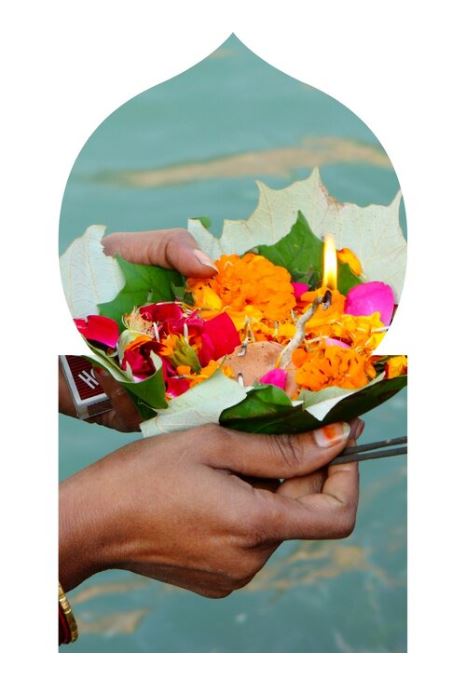
How to Build a Spiritual Business – Self-Trust and Confidence
Host | Tristan Thibodeau:
I also think from my perspective, it’s a little bit of, um, you know, this is a very. An eloquent way to say this, but thinking that you’re the shit, you know, like really saying like, I am good at what I do, and absolutely love who I am.
And I have a perspective that not very many people have, and that’s not me being, I mean, it is egoic, but in a positive way, right. In a very positive way. Motivating way to help yourself claim that bigness. Cause that’s really what we’re talking about here is nobody is going to. Give you the platform that, you know, in your heart, you deserve and the position of leadership and authority that you know that you can handle and can follow through on.
And so there has to come to that balance of self, self-trust is what if I’m put in this position, am I going to be able to do. If I am put in front of, you know, I do this all the time, because sometimes I get on the phone with clients who are big, big, big names in their industry. You were gone, and I’ve gotten on the phone.
How to Build a Spiritual Business – Making a Name for Yourself
You are a big name in the Akashic industry. Like people know who you are and just in beauty industries and wellness industries and all different industries. I get on the phone with really big names and I have to trust myself in the fact that I am good at what I do, and I love what I do. And at the end of the day, I am here to steward this person’s vision and help them bring it to them.
I’m not necessarily taking action on their behalf. I’m helping them get out of their way and see the bigness of where they could go and how big they could take their brand. And if I trust myself to be able to play that role for them, then who am I to cower and be intimidated by the, you know, the reputation or to be intimidated by.
The, uh, the visibility of different people. And because that plays a role, it’s like, who am I the size of my audience? You know, not that big personally, people across the world don’t know my name yet. Yes. But when I look at the impact that I have on my clients, like, that’s the thing that helps me trust myself.
Hey, I’m not going to attract people that are not meant for me. Like they’re not going to say yes if they’re not meant for me. And second, my role is to steward their vision, not to bring it to life for them. So if I can play that supportive role in that guiding role, then I know that I’m going to show up to my best ability and help them create epic results.
So there’s a combination of that claiming that self-trust, but also just that boldness of like, nobody’s going to give this to me. I got to go out and collect. And if you’re bold enough to claim it, and you can stand in the uncertainty of that imposter syndrome and choose your vision over the imposter every single time you’re going to create insane results that you didn’t think were possible.
So I love that you brought that up so much.
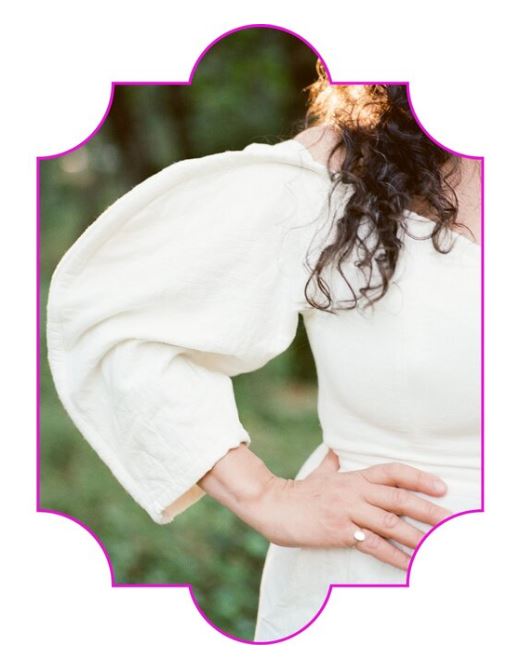
How to Build a Spiritual Business – Tapping into the Ego
Guest | Rohini Moradi:
Absolutely. And just to piggyback on what you just said too, there’s the whole ego aspect of it that I think a lot of people have. I assume or whatever about spirituality and honestly, like, it’s so healthy for us to like to tap into that ego. It’s unhealthy to minimize it because the ego is our guiding light in this
In this three-dimensional planet, the ego is what helps us survive. And of course, it’s not just pure ego because ego on its own is narcissism. But when you open your heart and apply the ego, that’s where the magic happens. So it’s like, you’re outputting, you’re serving your community, but you have to build yourself up and be a whole person and believe in yourself to be able to do it.
Host | Tristan Thibodeau:
Yeah, absolutely. And I would love for you to share more about how to constructively utilize the eco when we are navigating, you know, everybody listening to this podcast and all the people that I work with, these are women that come from. Really big missions in their hearts.
They want to touch millions of lives and have global brands. Not for the sake of having a global brand, but because by going global with their mission, they are contributing to a big change in the world. They are contributing to positive change for the collective. So I would love for you to talk about maybe some detrimental ways that the ego comes in, but then also ways that we can positively leverage the ego to get our vision out into the world and to create beauty and connection and all of the things that we are trying to create.
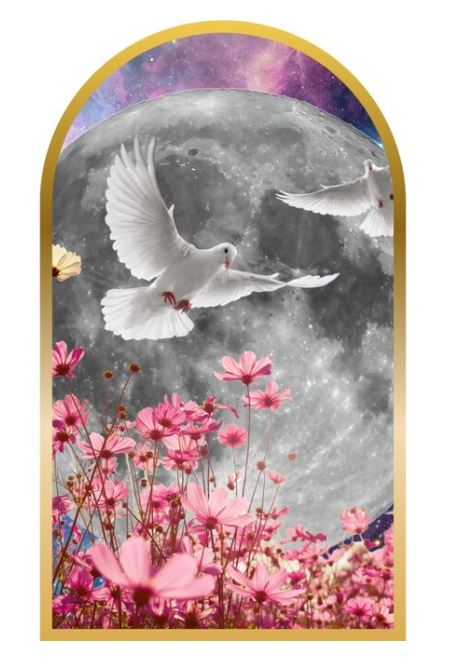
How to Build a Spiritual Business – Connect With Your Vision
Guest | Rohini Moradi:
Um, I love this. I love it. And I have. Okay. So one of the first things that come to mind is when we’re tapping into our ego and we’re amplifying it to keep our focus strong. It’s when we lose our focus that the ego can just take hold and start controlling the situation. But here’s something that’s like, that was very profound that I learned about.
I was digging around in my lineage. For most of my life, I’ve pushed away from the Persian side of myself, because I just experienced a lot of war in like, well, like unhappy situations there. But happy once with my family, just the outside color, you know, that stuff. So I didn’t follow through with this part of myself.
And in the last few years, I started digging in and digging in, digging in. Now the true meaning of magic came from Persian magic in the beginning. What never. Um, but this is where the word is derived from. And the match dice were known to be these really powerful beings because they delivered real results.
And this is where it applies to anyone who, um, has like the dream, the, uh, inner vision to bring a lot of like impact too, to the outward. World. Um, but the mission was to first, fully work on themselves inward, and this is a part of their initiation. They had to go through a lot of inner work. And once they, um, amplified these parts of themselves through ritual daily practice, then their only other mission.
And this is the real meaning of magic. This is what made them imagine it was too. The surrounding environment, and the people around them, were to contribute to the world positively. And that’s what they worked towards. If one of them stepped away from that and started, um, using this magic and initiation that they developed, um, for instant gratification to harm anybody.
Going back inward after you’ve gone inward is considered sorcery. And that’s where, you know, magic started having a really bad connotation to it because they’re like, well, you have this power and you can use it towards anything. So I think this speaks a lot. To the ego too, because you got to go in, you got to like feed your ego.
You have to get familiar with what’s inside, but you have to keep your focus on the output and what you’re giving to the people around you. And that is like, that’s where the magic happens. I love it. Oh, you just took me down, uh, like a very cool, magical rabbit hole and I am so here for it. Um, and something that, you know, to bring them.
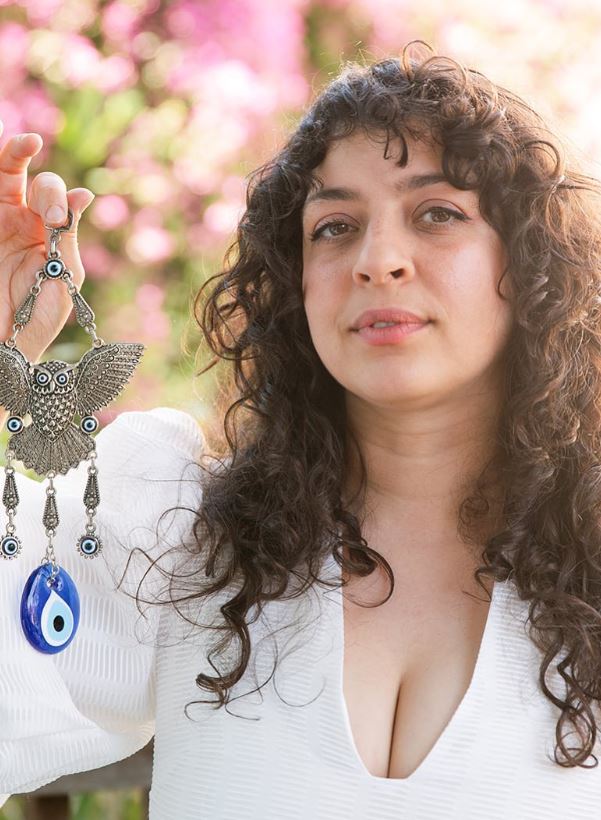
How to Build a Spiritual Business – Your Brand’s Mission and Vision
Host | Tristan Thibodeau:
To the focus and the lens of the brand. What we’re talking about here are the brand’s mission and the brand’s vision. So everything to do with the brand is not your logo. It’s not your color palette. It’s not your social media. A brand is a feeling it’s a gut reaction that people have when they encounter your business.
And when you have a strong brand, what that means is that people come to you specifically for a type of experience and a type of emotion. And so. Where this ties in with utilizing ego and utilizing magic is we want to stay crystal focused on what that feeling is and why we’re creating that feeling.
Because when we create the feeling of empowerment our audience is unable to do something unique. When we create the feeling of awe our audience isn’t able to do something unique with their lives and with their experience. And so staying laser-focused and using your ego to amplify what that brings. It is in full service to everyone else.
And from there, no matter how big you think you are, you are too big for people to handle or too loud or too colorful or too out there or too, whatever, when it’s laser-focused for a specific intention, which is enforcing the brand, strengthening the brand. Everything then becomes of service to anyone that receives an encounter, that brand.
So I love that story and that explanation that you just gave because it’s so it’s, it gives so much permission for people just. Go big.
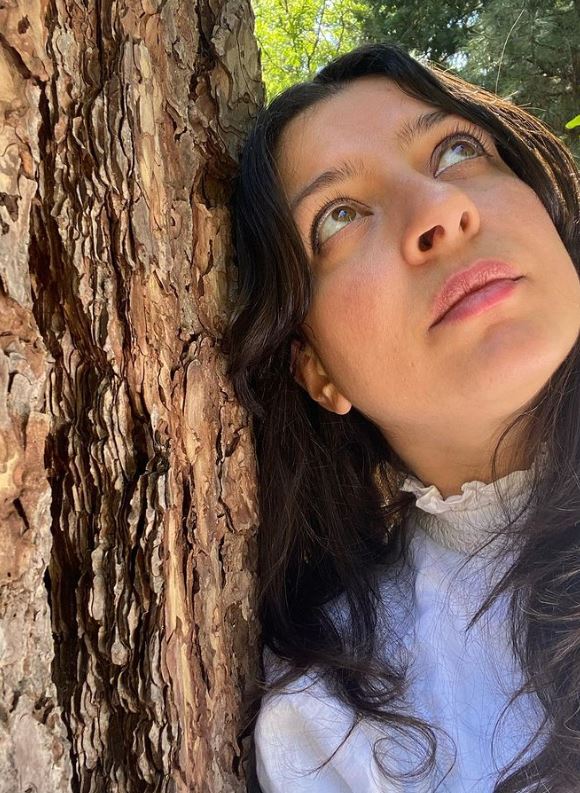
How to Build a Spiritual Business – The Importance of Loving Yourself
Guest | Rohini Moradi:
Yeah. And just love yourself. It’s okay. I know it’s a struggle for a lot of us because I, you know, as I said, our society is sick and we’re just taught to not like ourselves so that we can consume and consume and consume.
But there are great ways of consuming when we do love ourselves. It doesn’t have to be one or the other. Yeah. And you know, it’s really funny because. Sometimes when people ask, you know, I get questions about, well, how do you do this? How do you do that? How do you do this? And honestly, Because I think they are awesome.
Host |Tristan Thibodeau:
And I like who I am. I think you’re awesome. I think you’re awesome. Like, I genuinely love who I am. I love all my quirks, I love the way that I work with people and I love how I can support them. And because of that, I am. Shy about sharing that because I think it’s genuinely awesome. And a lot of people might haven’t cultivated that much, like self-love or self-respect, might say, oh wow, you’re full of yourself.
But with ego, like, yeah, I am full of who I am and I’m not afraid to let who I am fill up who I am so that I can share that with other people. So that’s such a powerful message for leadership. Creating a strong, powerful brand in general. Thank you.
Guest | Rohini Moradi:
No problem. Thank you for that. You’re, you’re such a good example of that too, because, um, you are the least narcissistic person that I’ve ever met, but you are the most confident and just like there’s some, there’s something magnet.
You know, that happens within ourselves when we like ourselves. And like one of my favorite things about you is that because you fully understand who you are and like you’re so tapped into like your true essence that you are living a full life, which a lot of us don’t do, you know, you were like really in your body, You’re living in your, in, in this life and you’re creating it.
You’re becoming like this powerful creator and it’s just really beautiful to watch. I’m just so that’s why I’m always like, I just want to be around her. Cause it’s like it’s illuminating to be around someone. Who has worked on themselves and likes acceptance, spells, and loves themselves this magic?
Host |Tristan Thibodeau:
It’s been a long journey. It’s been tremendous, lots of investments were made to get to this point, lots of, lots of inner work, but you know, where I would love to go next is I would love for you to share. What the moment was when you decided to start magic inclined, which is your current brand because you have other businesses that you’ve run in the past.
And I remember you telling me that there was a moment when you decided, “hey, I think it’s time for this to become something big.”
So I would love for you to tell the story of how magic inclined got started because how you built your community is so heart-centered, and it is so authentic and it was such an outpouring of who you were.
Being that heart-centered authentic person can create huge results, which is what you’re now getting to pick the fruit of. So can you tell us that story of how magic inclined got started and then the moment where you were like, you know what, I’m ready for this to be something, even though?
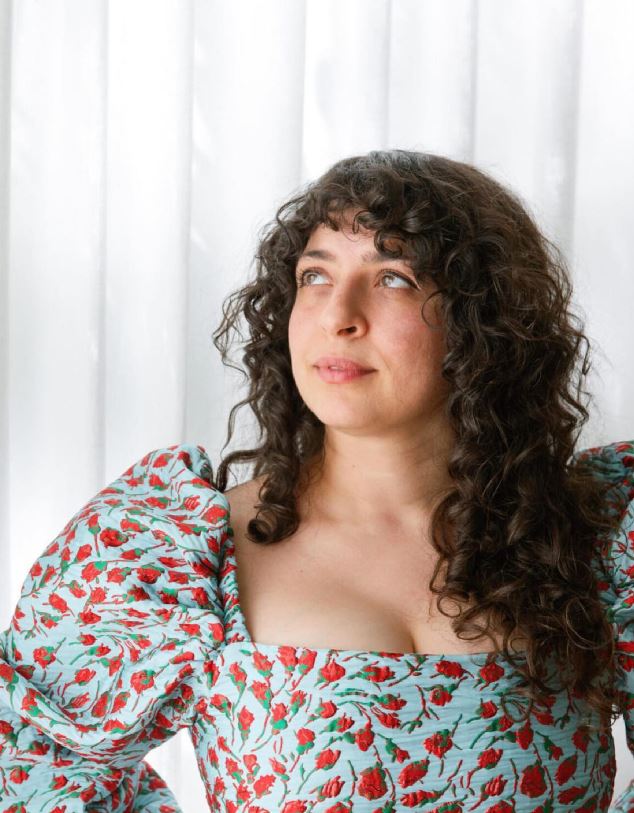
How to Build a Spiritual Business – How Magic Inclined Got Started
Guest | Rohini Moradi:
Yeah, well, in all honesty, it feels like this is what I’ve wanted to do my whole life, I wanted to work in, um, in a spiritual realm. I didn’t know what it was then, but I want it to have a big impact and to bring people closer to their inner light. And this was just something that I pushed away for a long time, because.
I didn’t know how to do it. Like I had no idea what it would look like and life just formed it for me. I didn’t try very hard. It felt forced after a while because it was what I truly wanted. Um, but I went through a lot of hardship and, you know, um, trigger warning, like I lost my infant daughter and then.
Kind of like crushed me into a puddle or I had to rebuild myself from the ground up. And I think once I started sharing that journey, it was very heart-centered and it was very heartfelt. I shared the way I was healing from that. That’s where the community came in because we’re all healing from something big, like maybe not.
Big, but everyone’s healing is, like monumental, you know? so that’s how everything started coming together. And, um, after a while of doing a lot of work, it felt nonstop. And like at a certain point I questioned whether it’s even healthy to do that amount of work or not, which I don’t think it was but after a certain while I. Started hearing that inner voice. Once again, that person who I am. Um, and I started liking her and I missed her really like I missed her and it felt good to be reunited. So I continued forward and there was a certain point where, um, I had grown a really good community and a really big community.
I knew how I wanted to, um, give to the collective. I knew what my path would start to look like. And that’s the point where I said, all right, well now I have to go for it and, and try to do something bigger than what I can accomplish on my own. And that’s when I reached out to you and I’m like, well, I’ve built it to this point.
I know where I want to go and it’s okay to not see every step, but I need help, um, uh, bringing it into like full manifestation at a faster speed because I could have possibly just kept going and going and going, but it would have taken me like five or six years longer if I did it all on my own without inviting, like, um, Uh, like another consciousness in with the process, you know, so yeah, that’s how it started.
That’s how I knew once I, once the. We’re in my hands. I knew that I had to do something. And you like to take off with the tools we have seen your business grow so much in such a short amount of time. And it’s just the beginning for you. I know that it’s just the beginning in terms of you’ve been doing this for a while, but the new level of like results.
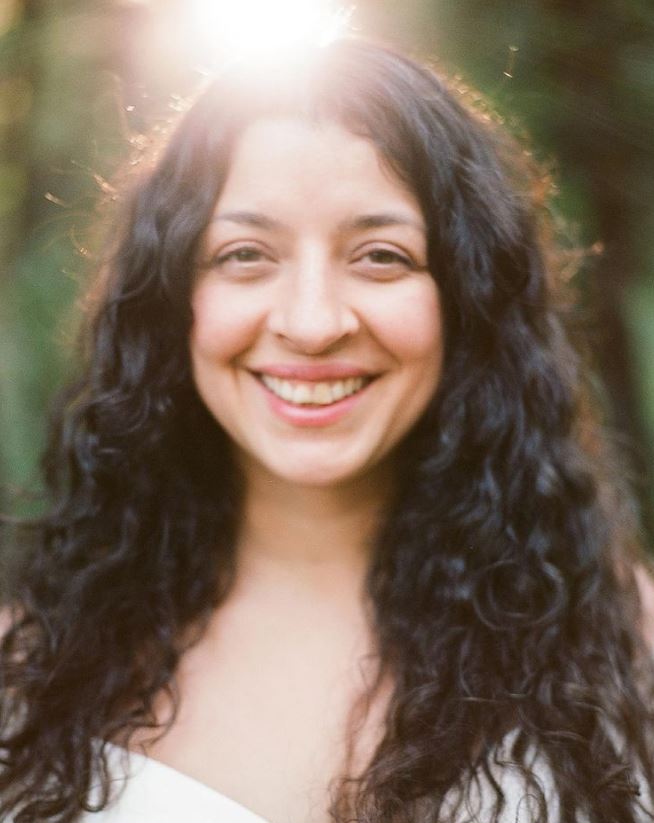
How to Build a Spiritual Business – Brand Strategy vs. Business Coaching
Host |Tristan Thibodeau:
It’s just the beginning. Can you tell us more about why you decided to focus on brand versus working with a business coach or a business strategist? And I positioned myself as a brand strategist and a brand mentor. So can you tell us a little bit about if there was a Wayne process or why you decided to go the route of brand versus business?
Guest | Rohini Moradi:
Well, the brand is like the output feeling, in my opinion, you know, like what you are conveying to the world and I’ve had, look, I’m not an expert. That’s not what I’m saying when I make the statement, but I’ve run enough businesses to like, kind of know what I like and what I don’t like up to this point, you know?
And. I know I’m stuck in my ways in some ways. So that’s not what I was looking for. I wasn’t looking for somebody to help me scale or do this or that. I wanted the feeling and the message that I put out into the world to be aligned with who I am inside. And that’s when I found you, you were like the perfect person to work with on that.
Um, cause I was actually. I was thinking a lot of darkness around myself and, um, my, you know, the inferiority complex, all this, like all this stuff was coming up. Cause like, it’s like we talked about, it’s like a daily struggle where sometimes it gets so foggy. You can’t see through it. But, um, I needed realignment.
The impact of having a clear brand strategy
I needed a clear brand strategy. And I feel like that helps businesses a lot more than just trying to sell and trying to scale because the feeling that you’re outputting, um, is more impactful than anything else that, you know, that I do. And it’s just, it’s so wonderful to hear. People who get that.
And that’s part of my message is to share the value of delivering a feeling and an experience more because that’s just where business is going from here on out. We’re no longer comparing features and prices. Now we want to self-identify with a brand. We want to feel connected emotionally to a brand, especially something that we’re going to make bigger investments into.
Host |Tristan Thibodeau:
And so can you share a little bit about. What you now see as possible for your brand and the work that you do with magically inclined as a result of getting that clarity with your brand and as a result of kind of seeing the process of how to put together a brand strategy, maybe where you’re going next, what your goals are.
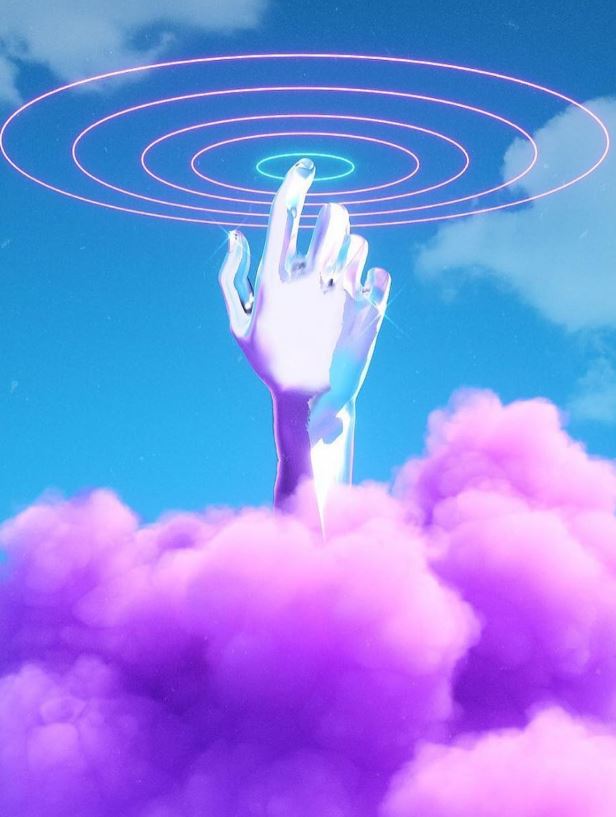
How a Clear Brand Grew Magic Inclined
Guest | Rohini Moradi:
Yeah. I mean, having a clear brand spread, brings so much comfort and ease in my opinion, because now I’m not second-guessing every decision I make, I have a clear vision of where I want to go, and who I want to be. And my vision is gigantic, you know, and I understand taking small steps towards that. If I’m aligned with my brand strategy will bring me there.
Um, I think. I don’t know. Um, I don’t know where I was going to go with that.
Host |Tristan Thibodeau:
Yeah. But you’re up to such big things, such big things. You have like multiple courses, you have an app launching. You’re going to be doing global meditation tours. You’re going to write up.
Guest | Rohini Moradi:
Yeah. Yep. But now I don’t have to stress about every single detail because there’s so much clarity in the way I’m conveying everything, you know?
And I think that the most important part is, um, no project seems too big at this point, because I’m clear on how. I wish to make people feel how I want to feel doing it. And I think that is the magic of branding and it takes years and years of, um, testing things out, out of the equation. Like it’s just a time saver.
Host |Tristan Thibodeau:
Yeah. It is. And. You know, I would love for you to share, and we can kind of wrap up here about the feeling that you’re creating through everything that you are doing with magic inclined. So you have your courses, you’re developing an, um, an apprenticeship role. At some point in the future. You’re currently building an app.
We don’t have to, you know, spill the beans on that, but you’re currently building an app. You’re going to write a memoir, like a book at some point in the future, and then you’re going to do it. Global meditation tours and just be a meditation rock star. No, you’re going to do it. There’s no doubt in my mind that that’s happening a hundred percent, 100%.
So tell me about the feeling and we can kind of wrap up there with what you hope magic inclined does for people that encounter it and what you want the legacy of magic inclined to leave behind.
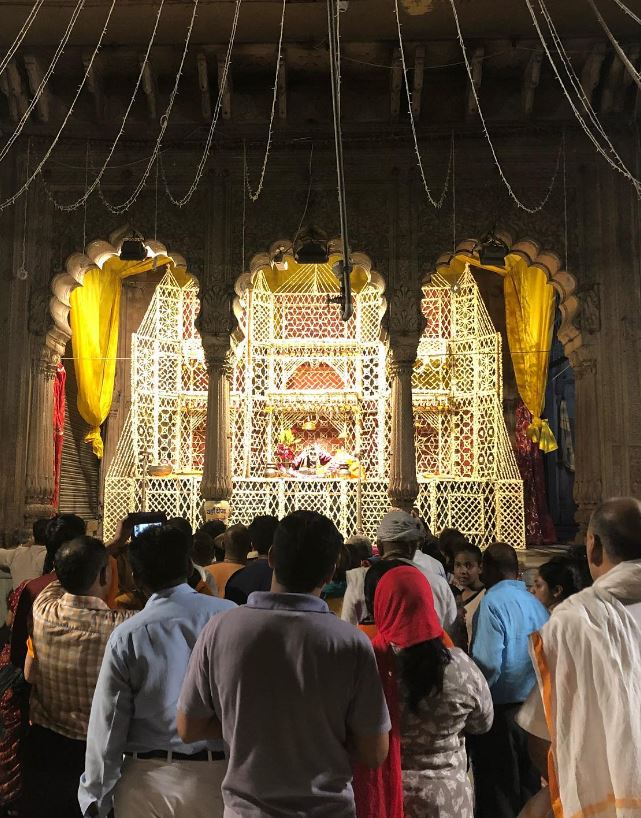
How to Build a Spiritual Business – Be Clear on Your Goals
Guest | Rohini Moradi:
My hope is for everyone to have access to empowerment. Self-empowerment to know that they are a magical being and a very unique one and no one’s ever going to be like them ever again, and to own it and to just really, really love themselves.
And then I think the whole brand, every single thing that I do, every single thing that I put out, um, is to feed that, that feeling of awe of, wow. There are no limits on what I can create in this lifetime. And how fun is that? How magical it is. Yeah, that’s so beautiful. That’s so beautiful.
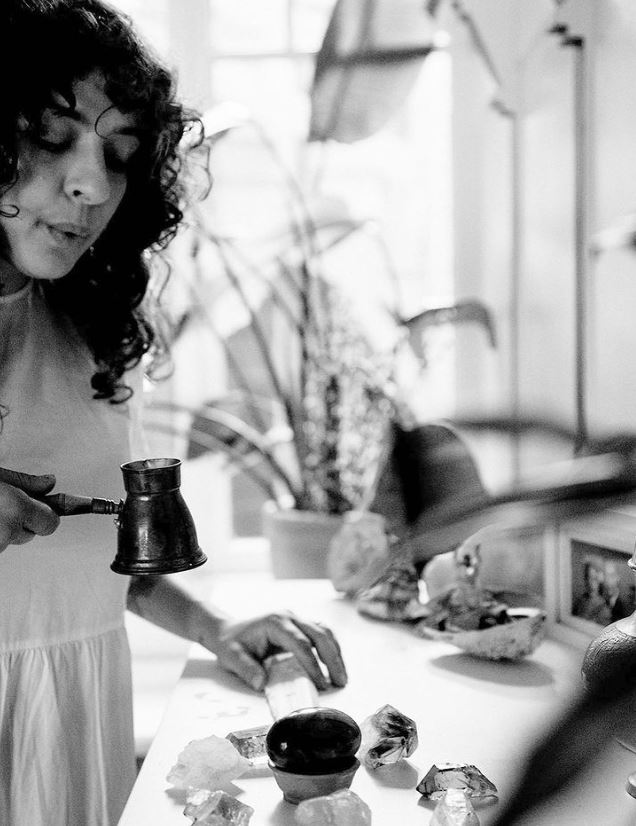
Message from Rohini
Host |Tristan Thibodeau:
Ro, is there anything that you want to leave the audience with and keep in mind? These are all female entrepreneurs. Um, I’m pretty sure I don’t have any men. Listeners. I could be wrong. I’ll have to check my data again, but my brand is pretty strong towards women and female-identifying entrepreneurs. Is there anything that you want to leave the wild woman fam with any wisdom nugget or anything that’s just sitting in your heart that you want to share?
Guest | Rohini Moradi:
Holy moly. I am so proud of you. Thank you for being an inspiration and going after your dreams. Um, I can’t wait to see more women, in the entrepreneurial space, uh, in the coming future. And it’s thanks to people like you, but yay. Keep going, keep doing it. It’s always difficult, but that’s okay. You are powerful.
Host |Tristan Thibodeau:
Everybody goes to follow her on TikTok. Her account handle will be in the show notes, go check her out on Instagram. Her content is so fun and you just fall in love with Rohini’s energy and her personality. Like you cannot help, but just want to hang up. So go check her out for guidance on your spiritual path and thank her so much for coming on.

In closing…
This was so much fun. Like I said, favorite one of my favorite clients of all time, the honor’s all mine. That’s a wrap on today’s episode with Rohini from Magic Inclined. If you have not done so, hit that subscribe button. And here’s why we put out weekly episodes that are jam-packed with valuable guest experts, like Rohini’s advice, subscribing you are making sure that you never miss a beat on the content that we have custom created for you.
Follow Rohini on Social Media
And if you loved today’s show and you want to show us a little bit of love, we would be so appreciative. If you could go to apple pie. Right or review or leave a rating. And if you do so, take a screenshot of it, and email it to us at podcast@wildwomnhaus.com. And we will send you a gift in the mail as a sign of gratitude for taking the time to show us some love on apple podcasts.
If you want to connect further with Rohini, 10 out of 10 suggest that you do. So she is one of the most beautiful humans. That you will ever have the pleasure to meet, and you can find her on TikTok, @magicinclined on Instagram, @magicinclined, and her website, www.magicinclined.com, all of which are in the show notes.
And with that, thank you so much for tuning in. I am sending you so much love I am forever cheering you on in your entrepreneurial goals in your brand-building vision. Now go out there and pursue that big impact and big income that you envision.
Click here to listen to the full episode on Apple Podcasts!
Want us to send you a free gift? Leave a rating and/or review on Apple Podcasts, and send a screenshot to podcast@wildwomnhaus.com.

Connect with the Author:
Tristan Thibodeau is the founder of Wild Womn Haus and is a brand strategist for entrepreneurs in the wellness, beauty, and lifestyle brand industries.
She specializes in helping companies create and maintain their image. She works with market research, industry analysis, and consumer trends to offer strategic insights for brands so that they can enhance their marketing efforts and grow their bottom line.
Follow her on Instagram @tristan.wildwomnhaus and follow the agency on Instagram @wildwomnhaus and TikTok @tristan.wildwomnhaus!
